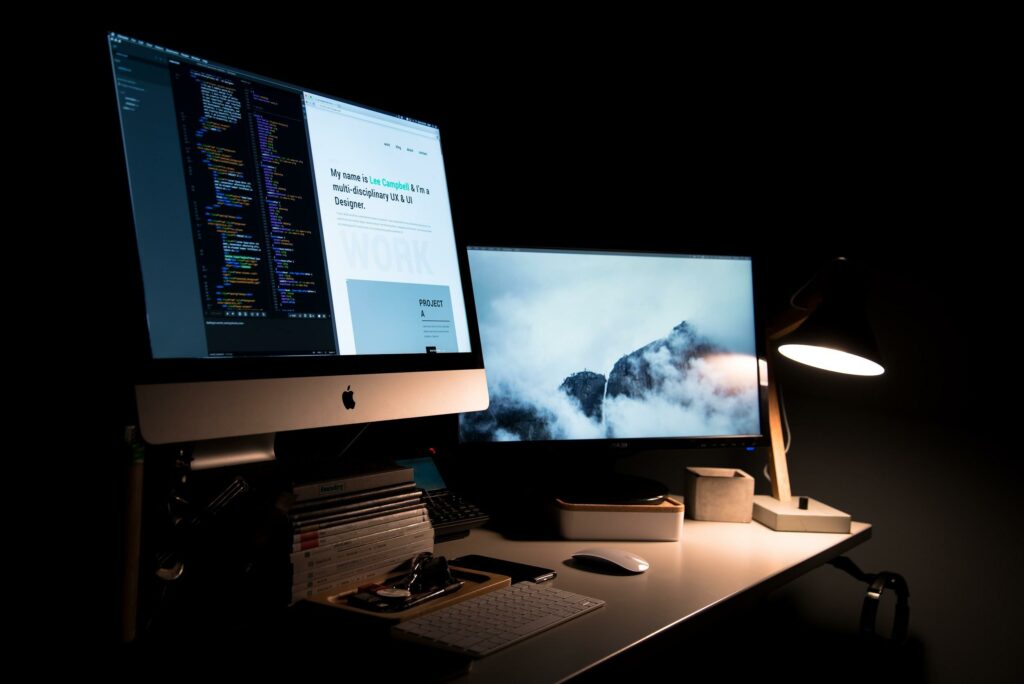Do you wonder what happened to your computer that was once a jet-fast machine? Well, a new PC always completes all tasks with a snap of the fingers. However, as time passes, the accumulation of junk degrades its performance, making it slow.
Thus, you should perform a cleaning exercise at regular intervals to maintain your computer’s speed and performance. If you are confused about how to keep your PC clean, this article is here to help.

This article brings to light the best tips to clean your computer quickly and effortlessly. Let us begin with them without any further delay.
Most Effective Tips to Clean the PC
Below are some helpful tips for easy and quick Windows PC cleaning.
1. Remove temporary junk files
Erasing temporary junk can be your first step towards a clean and fast computer. Temporary junk files may sometimes occupy a lot of disk space and resources. Hence, their removal can significantly boost your device’s performance.
You may remove temporary junk through Disk Cleanup (access it using Windows search, select the option to clean up system files, choose the files you wish to delete, and click on OK), Storage Sense (access it through System settings, go to temporary files, select the files to delete, and remove the selected files), or you can simply use a Free PC Cleaner to get rid of unwanted files.
2. Delete enormous files
Deleting large files helps you free up ample space and resources on your computer for improved performance. Hence, you may delete large files from your computer. To remove these files, you can follow the steps below.
- Firstly, right-click the Windows icon on the taskbar.
- Ensure that you see This PC in the location bar.
- In the search box at the top-right corner, input size:empty.
- Now, navigate to the Size tab and select any size ranging from Empty to Gigantic.
- Right-click on the file you want to delete.
- Select Delete from the on-screen options to remove the selected file.
3. Use Task Manager to optimize the startup applications
Not all startup applications are necessary for the smooth functioning of your computer. You can disable the apps not needed at the PC startup to get a clean, optimized, and fast performance. Below is how to turn off these apps using Task Manager.
- Firstly, right-click the taskbar and choose Task Manager from the on-screen options.
- Now, navigate to the Startup tab.
- Identify the programs your computer does not need at the startup. Generally, these are high-impact programs.
- Lastly, click on the identified program and select Disable.
4. Clean your Recycle Bin
Deleted files you may no longer need and never ever restore may be unnecessarily lying in the Recycle Bin, hogging up the disk space. Hence, you should review the files present in the Recycle Bin and delete the ones you no longer need. However, you should be completely sure before deleting any file, as it may not be recoverable unless you have a file backup on a cloud storage platform or an external storage drive.
5. Uninstall unwanted applications
We download quite a lot of apps. Some of these applications we frequently use, other ones we rarely use, and then there are applications that we do not use at all. These unused applications only hog up your device’s resources and space, leading to poor performance. Hence, you should remove them from your computer by following these steps.
- Firstly, right-click the Windows icon on your taskbar.
- Now, select Apps and Features from the available options.
- Find the application you do not use and select it.
- Click on the Uninstall button.
- Lastly, confirm the uninstallation and wait for it to complete.
6. Uninstall in-built applications
Windows 11 and 10 come loaded with pre-installed applications. If you do not use these built-in apps, it is better to uninstall them to free up space. Here is the way to do it.
- Firstly, go to the Start menu and locate the in-built app you want to remove.
- Now, right-click on the application and choose Uninstall from the on-screen menu.
- Lastly, confirm the uninstallation and let the process complete.
7. Delete browser extensions and history
Cleaning your browser is also crucial to ensure smooth device performance, as the browser also forms part of the system. Hence, you should clean your browser history and unused extensions regularly. Here is how to do it.
Note: Different browsers have different steps to clear extensions and history. However, they remain more or less the same. Below are the general steps to do it.
- To remove the extensions, right-click the extensions and choose Remove.
- To clean your browser’s history, navigate to the browser settings, choose the appropriate option, and remove history for the desired time range.
Summing Up
This article highlighted some highly-effective tips to clean your computer and elevate its performance. We hope it helps you get the most out of your device. It is now time for us to bid adieu. However, we will be back with another useful piece of information. Until then, please stay connected with us.